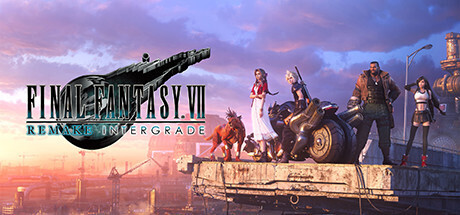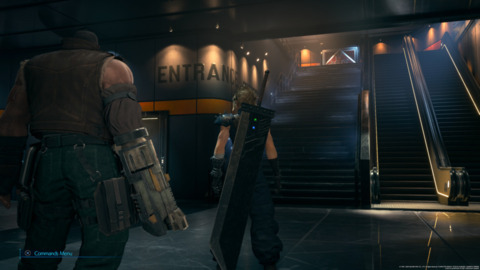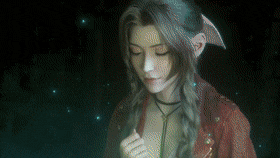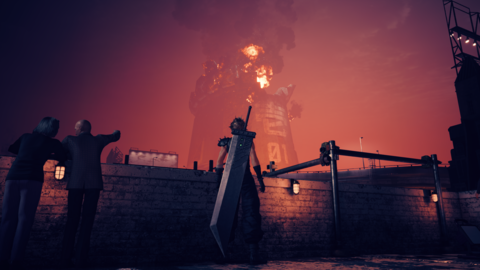I Love What Final Fantasy VII Remake Had To Say About Fandom
By pauljeremiah 2 Comments

To say the Final Fantasy VII Remake was divisive would be underselling it quite a bit, I think. Even to this day, I feel like a lot of people are really unsure what to make of it. I don't see enough discussion around the meta-narrative and what it says about gaming.

Final Fantasy VII grapples with the game's identity and reason for existing in a way I honestly did not expect it to. Fans clamoured for a remake of this game for years, while they were simultaneously ready to pounce on any imperfection, real or perceived, to a potential remake. Square Enix had to grapple with characters who had been flanderized and whose fandom personalities bear little resemblance to the characters in the original story (Square Enix itself is also to blame for this, with how they handled the characters in the extended universe.) For example, in the canon of Final Fantasy VII, Tifa and Aerith seem to resemble the Madonna/Whore paradox (Women being either pure motherly beings or promiscuous sexual creatures). The problem is that their personalities have been swapped in the collective minds of fans. If you play the original games, Tifa in spite of her more "assertive" character design was the demure, almost shy character. At the same time, Aerith was the loud, boisterous woman who started flirting with Cloud the second they met to get what she needed out of him (protection from the Turks.). Aerith is the woman who plainly talks about her past boyfriends with her "hired" bodyguard, whom she is paying by dating. I firmly believe that the reason their character's personalities have seen such a flip in the fandom is due to their character design and Aerith's untimely death.
These characterisations are just one of many problems that SE had going into this remake. Is Cloud the tortured loner who wants to push everyone away and take the weight of the world himself, or the cold mercenary who doesn't give a fuck? Not really, and the original game makes it clear. For lack of better words for him, OG Cloud was goofy. He was a character who unironically used the word mosey, whose bluff of a cold, unfeeling character was obviously seen through by literally every character in the game (Look at those original Avalanche scenes.) and even he admits it's a front to a degree. He is in the midst of a mental breakdown, but that darkness doesn't consume him. He's not the character that you would expect just from cultural osmosis.

The plot was the next big issue. People wanted it to be expanded, but they also wanted the plot to be true to the original, which hamstrings the devs. Before the game was first released, when we saw scenes of Jesse's expanded story, there was a lot of harrumphing of "Why waste time on Jesse? we know she's gonna die early on." People wanted a full game out of Midgar, but they also know the important story beats of Midgar so any changes would be seen as padding to the runtime. It was, in some ways, truly an impossible game to make, and I can understand why they had so many issues deciding on how to tackle it.
In come the ghosts.
These ghosts are, in my opinion, an excellent distillation of the fandom. They show up any time the game threatens to go too out there or stray too far from the plot. "No Cloud, you do need to help with the second reactor mission. It is what you do. It is how the story goes." This culminates with them literally bringing Barret back to life. "No, Barret can't die now. That doesn't happen!". They kind of channel the aspect of obsessed fandom personified by Annie Wilkes in Misery, where things must be done the right way, the way they should be.
I can understand why this kind of meta-narrative wasn't necessarily popular with many members of the fandom, but I love it. I think FF7R works well as a behemoth company looking at a piece of media they do not have control over, that they cannot remake in a way that any large portion of their fandom would come to a consensus over, and instead of trying to thread that impossible needle, saying "We are going to show you why we aren't going to do what you want in the future. Do you want the full Midgar game? Fine, we will give it to you, but you're going to need to reexamine why and what you expected it to be.”

When it comes to media, I don't particularly care about adherence to "Canon". I find that it, at best leads to creatives having to execute someone else's vision rather than their own at best, and a study in mediocrity at worst (See the first two Harry Potter movies for the dangers of a near-line-by-line remake). The original book/movie/game is always going to be there; I want to see what a creative mind can do with the world and setting I love. I think this is why The Shining or Jurassic Park or Who Framed Roger Rabbit work so well. They don't force themselves to keep to the original story for the sake of "it's canon”.
When the remake was first announced, I told all of my friends that what I wanted more than anything was for Cloud to save Aerith from Sephiroth and die in her place. Take one of the most iconic moments of gaming, change it up, shake the game from the safety net of the original game and tell a new and exciting story. While they might not have done that (Yet!), I do think the changes made make for a much more exciting story coming rather than the same story I can play whenever I want. Square Enix has, through their meta-narrative, freed itself from the shackles of its fandom and expectations, and I'm super excited to see what comes next.
